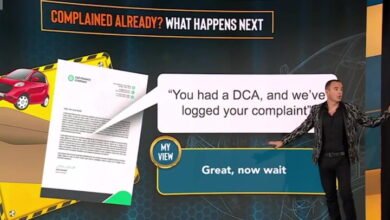Cotswold council tax rise ‘to avoid future bankruptcy notice’

- By Carmelo Garcia
- Local Democracy Reporting Service
Image source, Getty Images
Cotswold District Council still faces financial challenges despite the new budget
Household bills and parking charges in the Cotswolds are set to rise from April.
Cotswold District Council councillors have approved a 3.3% tax hike in a bid to avert a financial crisis.
Leaders said the authority was not in imminent danger of issuing a section 114 notice, which would effectively declare bankruptcy.
But finance chiefs warned it was facing a “financial cliff edge” in years to come.
The new budget, approved at a meeting on Thursday, means people living in a band D property will see the annual proportion of council tax which funds district council services rise by £5 to £153.93.
The final total council tax bill will be much higher as it will include the charges of Gloucestershire County Council, the police, and, where relevant, parish councils.
District council finance chiefs said they faced a cumulative budget gap of around £4.2m which would reduce their financial resilience reserve to nil by the 2027/28 financial year.
To tackle this, the council has created a savings and transformation plan which should close the gap by around £2m this coming financial year.
It aims to make savings of about £1.2m and generate some £770,000 in extra revenue by raising parking charges by around 15% and introducing Sunday charging for car parks.
Finance cabinet member Mike Evemy, Liberal Democrat, said thanks to his administration’s decisions, the council was not facing the dire situation many other UK authorities are, reported the Local Democracy Reporting Service (LDRS).
However, he said it was facing a “financial cliff edge” in 2026/27.
Mr Evemy said it would make savings of £1.25m and create more than £750,000 in extra income from fees and charges, making a total contribution of £2m towards balancing the budget.
The Conservative opposition proposed a budget amendment to scrap the proposed introduction of Sunday parking charges.
Group leader Tom Stowe said the charges will be a “major blow” to already struggling traders, turning some areas into “ghost towns”.
But council leader Joe Harris, Liberal Democrat, said the authority was facing a huge financial challenge and “to avoid a bankruptcy further down the line, a section 114 notice” it had to take tough decisions due to the government not funding councils properly.
The amendment was rejected by 23 votes to eight and the budget was approved by the same numbers.
Source link





